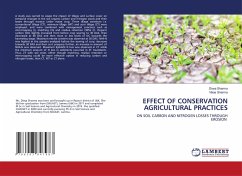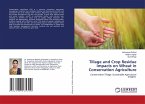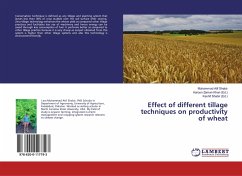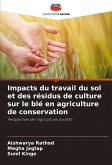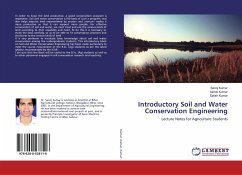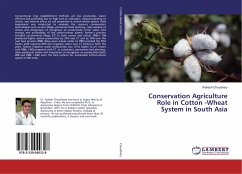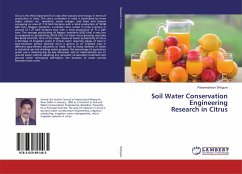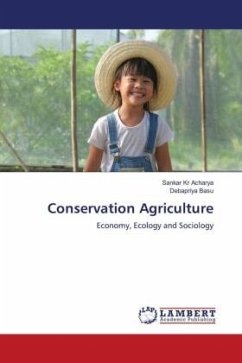A study was carried to assess the impact of tillage and surface cover on temporal changes in the soil organic carbon and nitrogen pools and their losses through erosion under maize crop. Three tillage variations i.e. conventional tillage (CT), minimum tillage (MT) and zero tillage (ZT) were employed, and were combined with management practices such as intercropping (i), mulching (m) and residue retention (30%) (r). Organic carbon (OC) slightly increased from before crop sowing to 30 DAS, then decreased at 60 DAS and then more or less levels of OC towards the harvesting stage. Maximum nitrate content was observed at 30 DAS. NH4-N was highest in the samples analyzed before the sowing of crop, decrease towards 30 DAS and then as it progress further, an increase in amount of NH4-N was observed. Maximum Kjeldahl N loss was observed in CT while the minimum amount of N loss in sediments occurred in ZT treatments. Thus, ZT with soil cover, either though mulching, residue retention or intercropping could be more effective option in reducing carbon and nitrogen losses, than CT, MT or ZT alone.
Bitte wählen Sie Ihr Anliegen aus.
Rechnungen
Retourenschein anfordern
Bestellstatus
Storno

